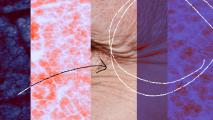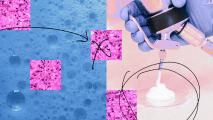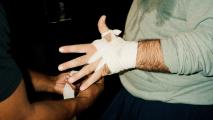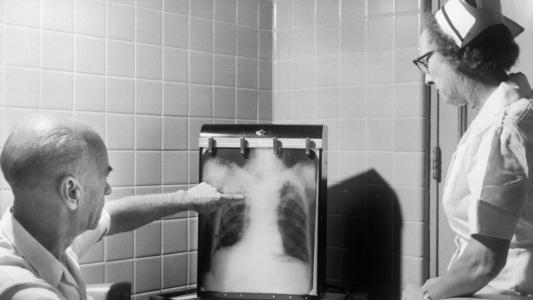FDA approves US’s first fecal transplant therapy
A first-of-its-kind product containing human fecal matter has just been approved by the FDA for the treatment of potentially life-threatening bacterial imbalances in the gut.
The challenge: The trillions of microbes that live in your gastrointestinal tract, known collectively as your “gut microbiome,” play an important role in your health, helping your body digest food, produce vitamins, and ward off infections.
Every year, 15,000 to 30,000 people die from C. difficile infections in the US.
If the balance of these microbes is thrown off, you may experience health issues. Taking antibiotics, for example, can kill off the helpful bacteria that compete with the microbe C. difficile in the gut, leading to a C. diff infection (CDI).
Symptoms of CDI include nausea, fever, and diarrhea, and in severe cases, it can even be fatal — 15,000 to 30,000 people die from CDIs in the US annually. Treatments are limited, and one in six people who recover from a CDI will get another within two to eight weeks.
Fecal transplant therapy: In recent years, fecal transplant therapy has emerged as one of the most effective ways to treat recurrent CDIs and get a patient’s gut microbiome back in balance.
The procedure takes a stool sample from a healthy donor — including the bacteria in their microbiome — and inserts it into the gut of the recipient.
The donor stool might come from someone the patient knows or a stool bank. Whatever the source, the stool should be screened for any microbes that might cause infections before transplantation.
Fecal transplant therapy uses a stool sample healthy donor to rebalance the gut microbiome of a person with recurrent CDIs.
That’s not always the case, though.
In 2020, six people who’d undergone fecal transplant therapy became ill because the donor stool contained E. coli. The previous year, two people had been infected with E. coli after fecal transplants, and one of them died from the infection.
The 2019 incidents prompted the FDA to issue a safety warning and new screening standards for the stool used in fecal transplant trials, but it otherwise left it up to doctors and trial researchers to make sure they were using safe stool.
What’s new? Swiss biopharma company Ferring Pharmaceuticals is now the first group to have a “fecal microbiota product” approved by the FDA. This product, Rebyota, contains stool sourced from qualified donors and screened for infections and viruses.
During two placebo-controlled studies involving a total of about 350 people with recurrent CDIs, the percentage of people who didn’t get another CDI within 8 weeks was higher in the fecal transplant group (70.6%) than the placebo group (57.5%).
Rebyota contains stool sourced from qualified donors and screened for infections and viruses.
The big picture: The approval of Rebyota confirms the efficacy of fecal transplant therapy at treating recurrent CDIs and should give doctors and their patients more confidence that the stool they’re using when administering the therapy will be safe and effective.
It also sets a precedent that could lead to the approval of other products specifically designed to right imbalances in the microbiome, which have been linked to everything from diabetes to multiple sclerosis.
We’d love to hear from you! If you have a comment about this article or if you have a tip for a future Freethink story, please email us at [email protected].






